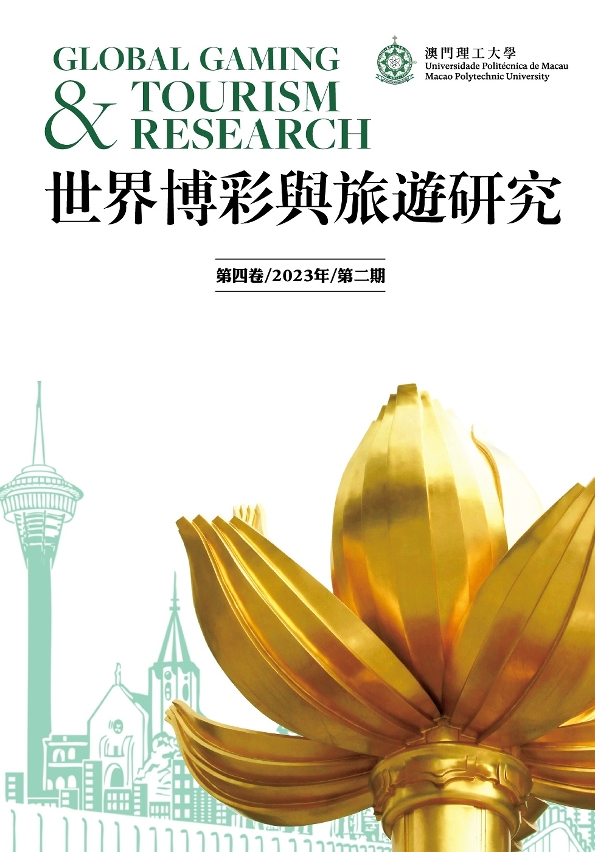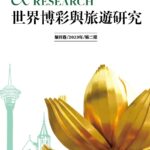 Global Gaming & Tourism Research (The Second Issue of 2023) by MPU
Global Gaming & Tourism Research (The Second Issue of 2023) by MPU
The second issue of Global Gaming & Tourism Research for 2023 (with 8 issues in total), has been officially published by Macao Polytechnic University, and features a rich collection of papers on gambling and tourism studies.
In the field of tourism, the article “Latent Profile Analysis of Residents’ Place Citizenship Behavior”, written by Associate Professor Zhang Hui from Sun Yat-sen University, suggests that the attitudes and behaviors of residents in tourist destinations directly influence tourists’ attitudes and behaviors towards the destination. The paper recommends that tourism destinations manage and guide residents in a targeted manner based on their attitudes and behaviors so as to build a tourism destination brand. The article “Study Activities, Emotional Reactions, Patriotism, and Revisit Intention in Red Tourism”, written by Associate Professor Jose Weng Chou Wong and others from Macau University of Science and Technology, constructs and tests the “Red Tourism Study Activities – Awe/Pride – Patriotism-Future Travel Intention” model based on the theory of emotional evaluation. It concludes that red tourism study activities significantly and positively influence patriotism through the mediating effect of awe. Other tourism-related articles include “Cultural Differences and Foreign Visitor Flows: An Econometric Analysis of Hong Kong” by Assistant Researcher Tang Pei from East China Normal University, “A Study on the Perception of Tourism + Cultural & Creativity among Generation Z travelers based on Online Text Analysis” by Professor Esther Kou and others from City University of Macau, and “The Current Situation, Problems and Future Development Trend of Chinese RV Rental Platform” by Associate Professor Wang Yixuan and others from Macau University of Science and Technology.
In the field of gaming, the article “Measurement of Social Responsibility of Macao’s Gaming Companies” by the Asia Pacific Association for Gambling Studies, including Professor Zeng Zhonglu and others, proposes a “Corporate Social Responsibility Evaluation Model based on stakeholder expectations” to effectively evaluate the fulfillment of social responsibilities by Macau gaming companies, and it provides a foundation for the effective evaluation of social responsibility in the gaming industry in Macau. The article “The Perceptions and Practical Dilemmas of Responsible Gambling Faced by Frontline Casino Employees in Macao”, written by lecturers Manian Wongkun and Liu Shuang from the Centre for Gaming and Tourism Studies of Macao Polytechnic University, investigates the actual situation and existing problems of responsible gambling practices in Macau gaming enterprises through interviews with frontline casino employees. The article “Product Regulations in the Mainland Lottery Market Since 2019: Characteristics and Impacts” by Associate Professor He Hui from the University of the Chinese Academy of Social Sciences examines the series of regulatory policies implemented by the mainland Chinese government in the domestic lottery market, and analyzes the characteristics of these regulatory tools and their impact on the market. Lastly, the article “Research on the Trends of Overseas Online Gambling Industry” by Associate Professor Ma Erdan and others from Yunnan University of Finance and Economics summarizes the development trends and existing issues in overseas online gambling.
Full articles can be accessed on the following webpage: https://www.mpu.edu.mo/research/zh/global_gaming_and_tourism_research.php. Global Gaming & Tourism Research is published semi-annually and covers key areas, including management and development strategies concerning gaming and tourism. The Journal welcomes contributions from experts from home and abroad. Articles can be submitted to: globalgaming@mpu.edu.mo.


